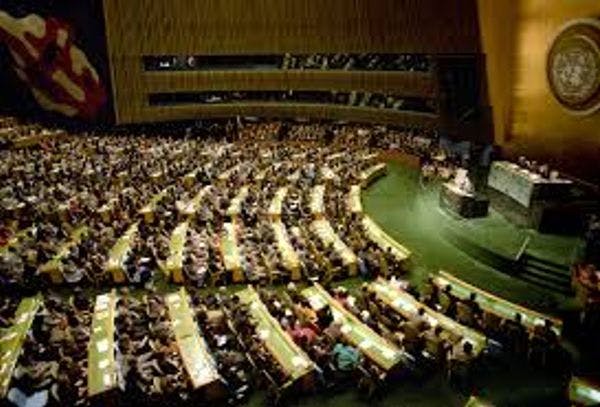Es hora de superar la guerra contra las drogas
Es poco probable que en la cumbre de la UNGASS se produzca una verdadera reforma, pero aún hay esperanzas de cambio. Más información, en inglés, está disponible abajo.
Suscríbase a las Alertas mensuales del IDPC para recibir información sobre cuestiones relacionadas con políticas sobre drogas.
By Philippa Garson
It’s widely acknowledged that the “war on drugs” has failed. A militarised approach based on prohibition and incarceration has stoked staggering levels of violence and misery, cost billions of dollars, and failed to reduce either supply or demand.
In April, the UN General Assembly Special Session (UNGASS) will adopt a consensus position on drug control, but few are expecting a shake-up to the current, conservative, global framework.
That’s why some reformers are turning to the Sustainable Development Goals as a blueprint for the future.
Critics of the “war on drugs” campaign have long evoked the term “harm reduction” to lobby for a more humane approach that treats addiction as a health problem rather than a crime.
They point to glaring contradictions between the current drug policy framework and the new – universally endorsed – global development agenda.
Not only has the war on drugs failed, but it has also piled on more of the ills the SDGs seek to address – rights violations, mass incarceration, livelihood destruction, violence, gang warfare, weakened states, poverty, the spread of HIV, gender discrimination… the list goes on.
Pipedream
The SDGs were viewed as a starting point for solving these problems in a bottom-up rather than a top-down way. Experts argue that if some of the 17 development goals were even halfway met, then individuals, communities and states would be more resilient to the destruction wrought by drug abuse and trafficking; and that if the $100 billion spent annually on drug enforcement went towards policies promoting development instead, then some SDGs may also be easier to attain.
The “drug-free” world the current policy envisages may be a pipedream, whereas a world in which illicit drugs are managed and controlled in less harmful ways may not be.
“The SDGs don’t address or solve drug policies, but they give us a framework to more appropriately tackle these issues in ways that do not simply create new harms,” says John Collins, editor of the London School of Economics’ After the Drug Wars report.
Evidence-based
Other recent research papers also put development at the core of discussions on new drug policy. In its report, What Comes After the War on Drugs, United Nations University (UNU) recommends setting up a working group to come up with new “Global Drug Control Goals”, in much the same way as the one that paved the way for the SDGs.
And in a much-lauded paper, Addressing the Development Dimensions of Drug Policy, the UN Development Programme outlines the litany of casualties of the war on drugs. It diplomatically quotes UN Office on Drugs and Crime (UNODC) boss Yury Fedotov’s own acknowledgements of some of the negative outcomes of the strategy he has led, and offers some pointers for how drug policy and control could be more “development sensitive”.
The authors argue for a greater role for UNDP in helping to create a more “evidence-informed, people-centred and development-centred approach to drug control policy”.
In the LSE paper, Mark Shaw, director of the Global Initiative against Transnational Organized Crime, argues that a development-oriented, harm-reduction approach should be applied all the way along the drugs chain, to the traffickers in particular and to organised crime in general.
“With the arrival of the SDGs, we have the biggest opportunity in a generation to view and respond differently to the back-end of the drug chain too – the supply side,” he told IRIN.
Click here to read the full article.
Keep up-to-date with drug policy developments by subscribing to the IDPC Monthly Alert.
Thumbnail: Wikipedia
Temas
Regiones
Perfiles relacionados
- United Nations Development Programme (UNDP)
- LSE Ideas International Drug Policy Project
